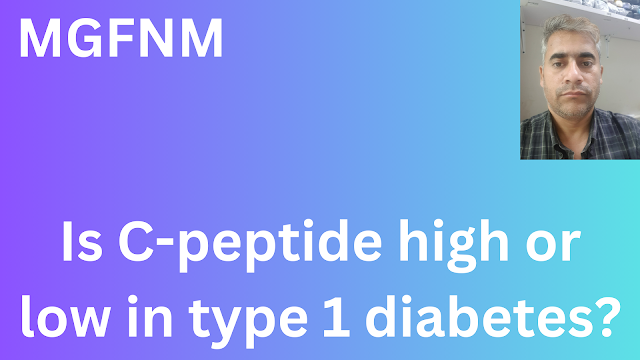
American Diabetes Association
American Diabetes Association
Diabetes Symptoms Type 2
https://t.co/8Ce3v135SD
— MGFNMHEALTH (@limbzest384) April 27, 2023
#islam #Quran #Madical
Diabetes diabetes symptoms type 2 diabetes hba1c diabetes mellitus endocrinologist type 1 diabetes insulin prediabetes gestational diabetes
Diabetes
When you have diabetes, your body doesn't produce as much insulin or uses it improperly.
low blood sugar normal blood sugar level
prediabetes symptoms hyperglycemia symptoms
type 1 diabetes symptoms
fasting blood sugar
blood sugar retinopathy normal blood sugar levels for adults insulin resistance diet diabetic foot insulin pump types of diabetes
glucose monitor
american diabetes association
normal glucose levels diabetes uk
diabetes test prediabetes diet
blood glucose levels
glucose test sglt2
blood sugar monitor glp1
insulin resistance symptoms
omnipod 5
causes of diabetes
low sugar symptoms
high blood sugar
continuous glucose monitoring
gestational diabetes symptoms
normal a1c
fasting blood sugar level
signs of low blood sugar
diabetes symptoms women
lancets
a1c test
world diabetes day
type 3 diabetes
diabetic nephropathy
signs of diabetes in women
hb1ac
glucose test pregnancy
diabetic coma
diabetes treatment
acanthosis
hba1c blood test
t1d
mellitus
high glucose levels
normal blood glucose level
hypoglycemic
signs of high blood sugar
gestational diabetes diet
high sugar symptoms
sugar symptoms
diabetic foot ulcer
blood glucose monitor
signs of diabetes in men
early signs of diabetes
diabetes mellitus type 2
normal fasting blood sugar
diabetic diet plan
blood sugar test
type 2 diabetes diet
pre diabetes symptoms
types of insulin
diabetes 2
signs of gestational diabetes
sugar test
type 2 diabetes treatment
snacks for diabetics
iddm
hba1c
diabetes mellitus
endocrinologist
type 1 diabetes
insulin
prediabetes
gestational diabetes
It is unrealistic for only specialists to treat 8.9 million diabetic patients. Even non-specialists cannot avoid diabetes.
Diabetes is the root of all diseases. Over the long term, all kinds of complications are possible.
The purpose of treating diabetes is to prevent complications, maintain her quality of life as healthy, and live the same life as a healthy person.
Microvascular complications of diabetes include retinopathy, nephropathy, and neuropathy.
Diabetic macroangiopathy includes coronary artery disease, cerebrovascular disease, and arteriosclerosis obliterans.
It is also important to treat arteriosclerosis risk factors (hypertension, dyslipidemia, smoking, etc.) that are likely to be a complication of diabetes.
In recent years, the relationship between metabolic syndrome and diabetes has been emphasised. The purpose of treatment for metabolic syndrome is to prevent arteriosclerotic disease and diabetes.
In the treatment of diabetes, the most important thing is not to interrupt the treatment.
Educating diabetic patients is the treatment itself, and the goal is to be able to self-manage treatment.
Diet therapy and exercise therapy are the main treatments, and drug therapy is only used as a supplement.
Treatment methods are selected according to insulin-dependent and non-insulin-dependent states.
It is not "too early" to introduce insulin when drug therapy becomes necessary.
Since April 1, 2014, all indications of HbA1c have become NGSP values (international standard values).
C-Peptide
C-Peptide
It helps carry blood glucose (blood sugar) into the body's cells, where it is used for energy throughout the body. It helps your body keep blood glucose at a healthy level. During the process of making insulin, your pancreas produces C-peptide. C-peptide and insulin both enter your bloodstream at the same time and in equal amounts.
C- Peptide test
C-peptide is measured in a sample of your blood or urine. Measuring C-peptide makes it easy to measure how much insulin your body is making.
Insulin is a hormone that your pancreas makes. It helps blood glucose (blood sugar) get to all the cells in your body, where it is used for energy. It helps a lot in keeping your blood glucose at a healthy level.
During this process, when insulin is made, your pancreas produces C-peptide. C-peptide and insulin enter your bloodstream at the same time and in equal amounts. C-peptide does not affect your blood glucose levels, and it stays in your blood longer than insulin, making it easier to measure accurately.
The C-peptide test provides important information to help the body understand, monitor, and treat disease, including how well your body is making insulin for conditions such as hypoglycemia (low blood sugar) and diabetes.
During this process, when insulin is made, your pancreas produces C-peptide. C-peptide and insulin enter your bloodstream at the same time and in equal amounts. C-peptide does not affect your blood glucose levels, and it stays in your blood longer than insulin, making it easier to measure accurately.
The C-peptide test provides important information to help the body understand, monitor, and treat disease, including how well your body is making insulin for conditions such as hypoglycemia (low blood sugar) and diabetes.
Proinsulin
C- peptide normal range
What does high C-peptide indicate?
What does high C-peptide indicate?
High insulin production: C-peptide levels rise in response to insulin secretion. Therefore, high C-peptide levels may indicate that the pancreas is producing a lot of insulin.
Insulin resistance: In some cases, high C-peptide levels may indicate insulin resistance, which is a condition in which the body's cells become less responsive to insulin. This can lead to high blood sugar levels and eventually diabetes.
Kidney disease: High C-peptide levels may also be a sign of kidney disease. The kidneys are responsible for filtering C-peptide out of the blood, and if they are not functioning properly, C-peptide levels may build up in the bloodstream.
Tumors: In rare cases, high C-peptide levels may indicate the presence of a tumor in the pancreas that is producing excessive amounts of insulin.
Medications: Certain medications, such as sulfonylureas, can stimulate insulin production and lead to high C-peptide levels.In conclusion, a high level of C-peptide in the blood can indicate several things, including high insulin production, insulin resistance, kidney disease, tumors, and medication use. If you have high C-peptide levels, it is important to consult with a healthcare professional to determine the underlying cause and receive appropriate treatment.
Is C-peptide high or low in type 1 diabetes?
Is C-peptide high or low in type 1 diabetes?
-
Health And House Hold Vergali Fabric Booty Bands for Women Butt and Legs. Set of 4 Non Slip Cloth Resistance Working Out Band for Glute, Th...
-
Anterior chamber problems can lead to a red eye the anterior chamber of the eye is literally a chamber at the front of the eye containing...
-
Aqueous humor and its production volum the aqueous humor as a clear watery fluid filling the anterior chamber 0.25 milliliters and posterio...









